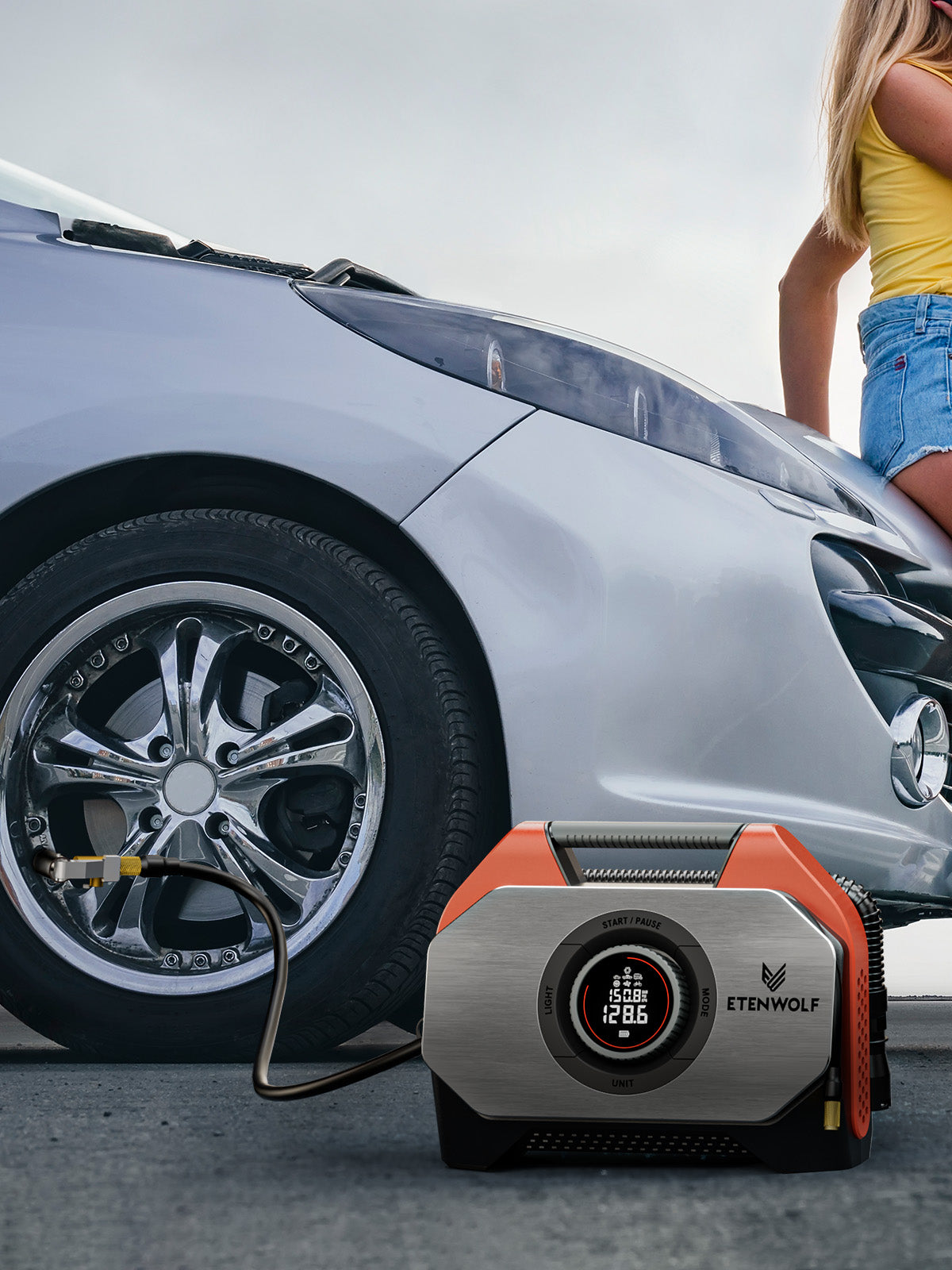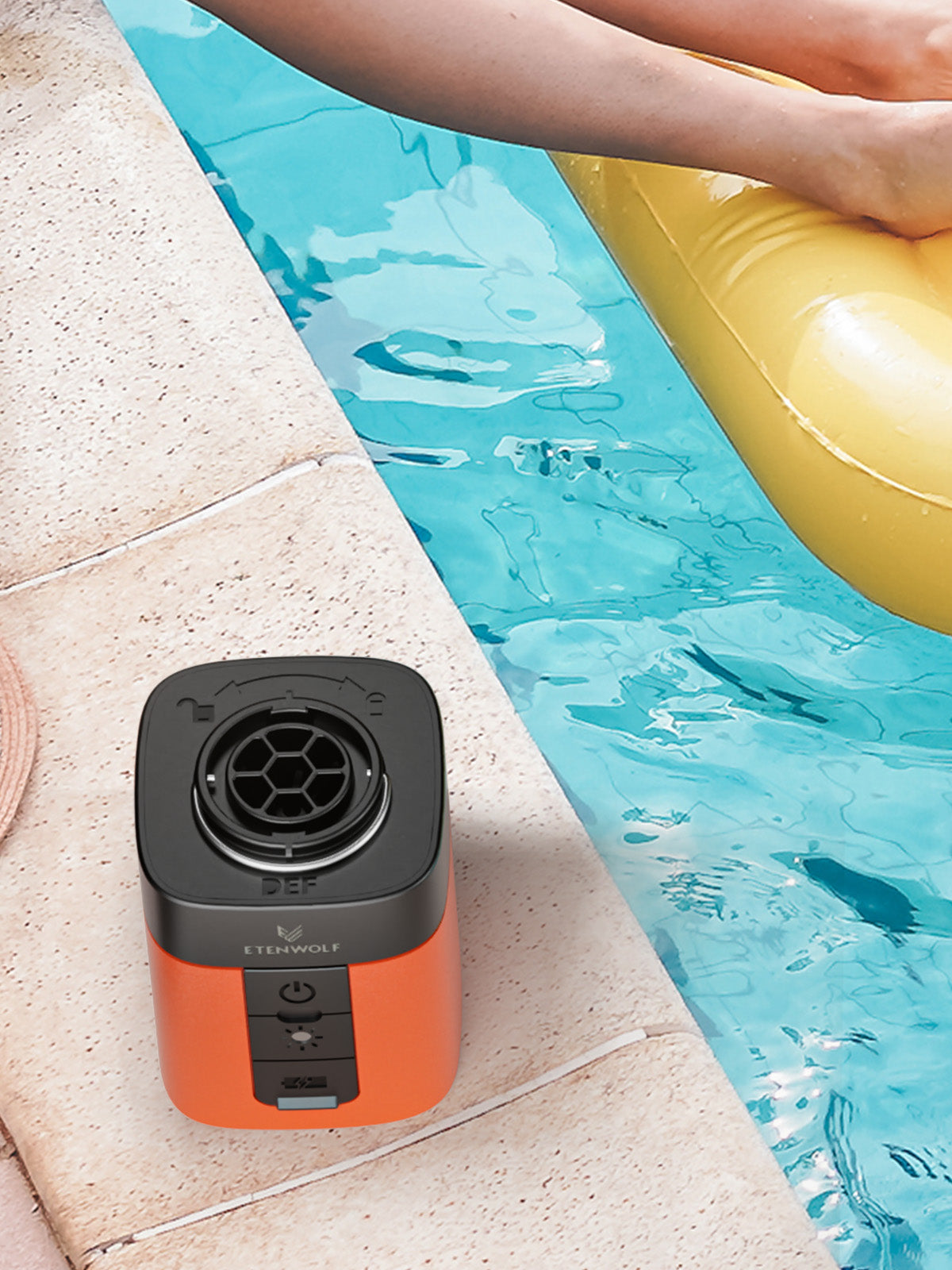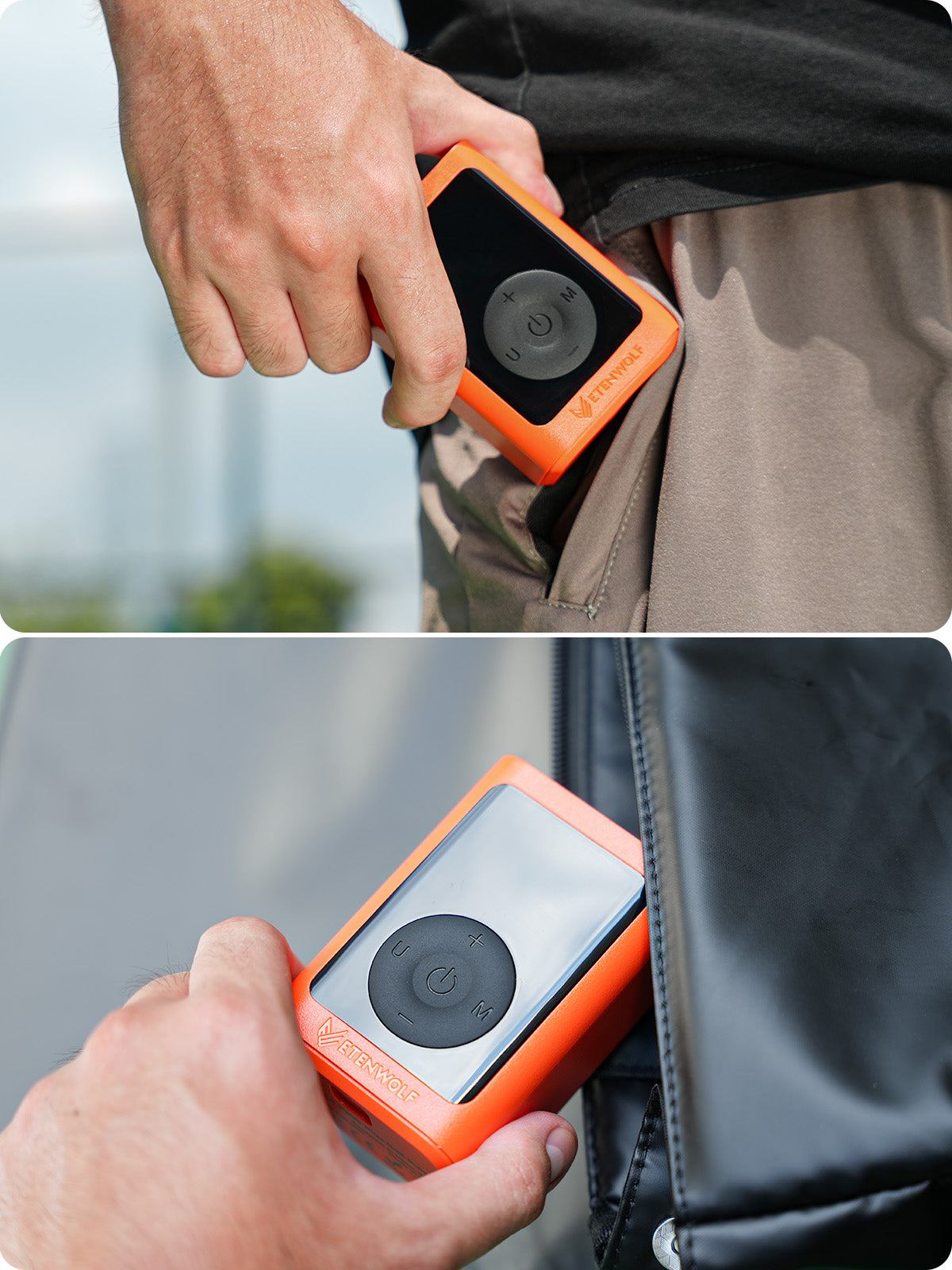A battery-powered air pump is an essential tool for car owners, offering convenience and emergency preparedness. Unlike manual pumps, which are slow and labor-intensive, or trips to the gas station, which can be inconvenient, a battery-powered pump provides a quick, portable solution for inflating tires anytime, anywhere. It ensures you're always ready in case of a flat, saving time and stress.
Why choose a battery powered air pump?
A battery-powered air pump is a lifesaver in emergencies, allowing you to quickly inflate tires during flat tire situations or roadside breakdowns. It’s cost-effective, saving you money by avoiding trips to gas stations or costly roadside assistance. Plus, it offers convenience, letting you inflate tires at home, in your garage, or on the go. They differ from traditional air pumps in the following ways:
What are the different types of battery-powered air pumps?
Battery-powered air pumps come in various styles, each designed to meet different needs. Here's a quick breakdown of the most common types to help you choose the best one for your car.

1) Portable Battery-Powered Air Pumps for Cars: Powered by lithium-ion batteries, these compact tire inflator models can provide good run time in a small package, typically compact enough to fit in your glove box or trunk. Therefore, they are great for regular use or quick fix during a flat tire situation.
2) Heavy-Duty Battery-Powered Air Pumps for Cars: Heavy-duty pumps are equipped with stronger motors and larger battery capacities for bigger jobs, like inflating truck or RV tires. Therefore, they are usually recommended for owners of larger vehicles and off-road enthusiasts.
3) Multi-Function Battery-Powered Air Pumps: these pumps do more than just inflate tires. With various nozzle attachments and adjustable pressure settings, they can handle a wide range of inflatables (e.g., mattresses, bikes, sports balls, pool floats). They are ideal for families and outdoor enthusiasts.
Etenwolf provide a wide range of battery powered air pumps that combine speed, versatility, and durability, making them the ideal choice for anyone seeking reliable and efficient tire inflation on the go. Explore more of our products!
How to Choose the Right Battery-Powered Air Pump for Your Car?
When selecting a battery-powered air pump, consider these three key factors to ensure you get the best fit for your car:
1) Vehicle Type & Tire Size
What to look for:
- For smaller vehicles (sedans or compact cars), look for a portable, lightweight pump with a standard PSI range (typically up to 100 PSI).
- For larger vehicles (SUVs, trucks, RVs, etc), look for a pump that features wider PSI range, high airflow rate, large battery capacity and overheating prevention.
2) Battery Life & Charging Time
A pump with longer battery life will be more reliable in emergencies, and faster charging times mean you’re back on the road quicker.
3) Accuracy & Pressure Monitoring
Over-inflating or under-inflating your tires can lead to safety issues. For accurate pressure inflation, you might need to consider a built-in pressure gauge and auto shut-off feature.
Common Questions and Trouble Shooting
1) Why is My Battery-Powered Air Pump Taking So Long to Inflate My Tire?
- Low Battery: A partially charged battery can slow down inflation. Please ensure the pump have enought battery before use.
- Pump Capacity: Smaller pumps may struggle with larger tires. You might need to consider use a heavy-duty pump for larger tires.
- Overheating: The pump may shut off automatically if it overheats. If the gear is too hot, please let the pump cool down before resuming.
2) How Can I Prevent My Pump From Overheating During Use?
- Continuous Use: Running the pump for extended periods can lead to overheating if there is no active cooling function. Take breaks to allow the pump to cool down.
- External Conditions: Extreme weather, such as high heat or cold, can affect the pump's performance. Ensure you're using the pump within its recommended temperature range by the user manual.
3) Why is My Pump Making More Noise Than Usual?
- Motor Strain: The pump may be working harder than usual if you’re inflating larger tires or pushing the pump beyond its limits.
- Clogged Filter: Filters that can get clogged with debris may cause the motor to work harder and make more noise. Please check and clean if there is any filters.






Leave a comment
This site is protected by hCaptcha and the hCaptcha Privacy Policy and Terms of Service apply.